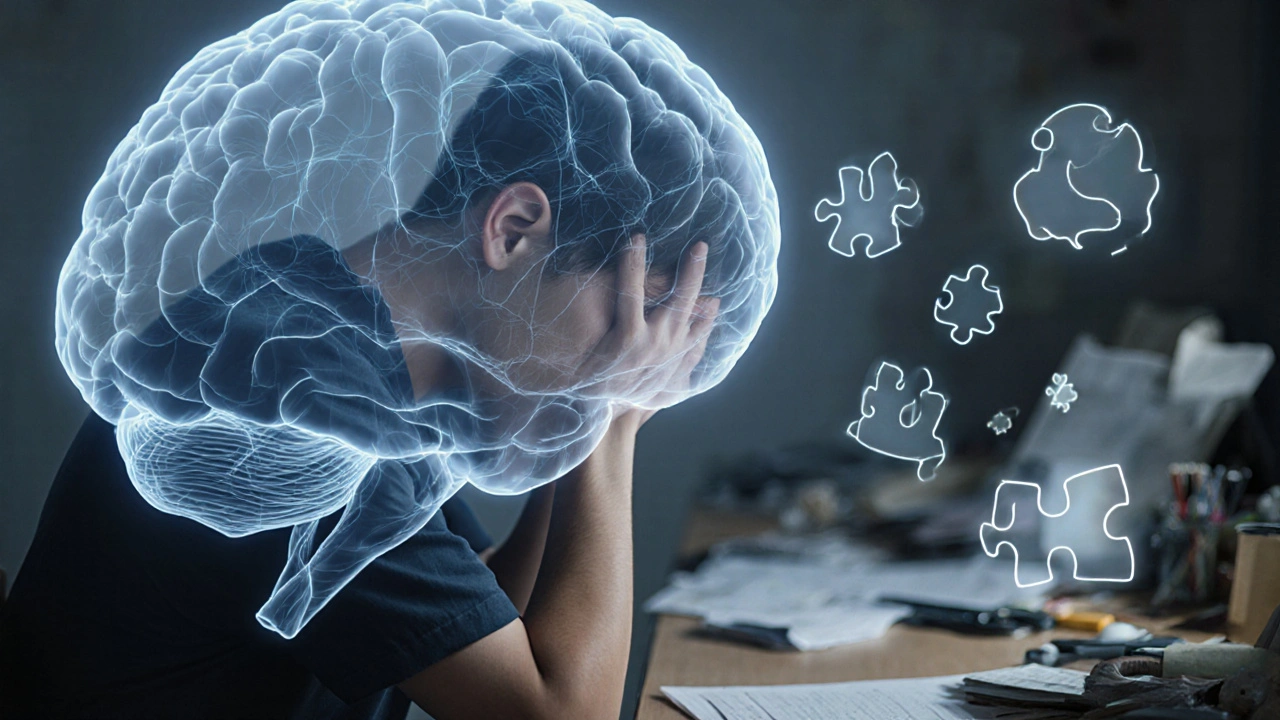Vitamin D Depression: Understanding the Link and Finding Relief
When dealing with vitamin D depression, a mood disorder that arises from insufficient vitamin D levels. Also known as vitamin D deficiency-related depression, it touches millions across ages and seasons.
Vitamin D, a fat‑soluble hormone essential for calcium absorption and brain health drives the production of serotonin, the neurotransmitter that regulates mood, sleep, and appetite. When vitamin D drops, serotonin synthesis can stall, often sparking low mood, fatigue, and lack of motivation.
Depression, a clinical condition marked by persistent sadness, loss of interest, and cognitive changes isn’t only a chemical imbalance; nutrition, sunlight, and immune function all play parts. In winter, reduced sunlight cuts skin‑produced vitamin D, tying seasonal affective disorder, a type of depression that follows a seasonal pattern tightly to vitamin D deficiency.
How to Spot and Manage Vitamin D Depression
Typical signs include feeling down for weeks, craving carbs, muscle aches, and a lingering sense of fog. The first step is a simple blood test for 25‑hydroxyvitamin D; levels under 20 ng/mL signal deficiency, while 30‑50 ng/mL is considered optimal. If you suspect vitamin D depression, ask your doctor for the test and discuss any supplement plan.
Supplementation is the most direct fix. Most guidelines suggest 1,000‑2,000 IU of vitamin D3 daily for adults, but severe deficiency may need 5,000 IU or a short‑term high‑dose regimen (e.g., 50,000 IU weekly for 8 weeks). Pairing supplements with sunlight exposure—10‑30 minutes of midday sun on arms and face, a few times a week—boosts natural production without burning.
Diet also matters. Fatty fish like salmon and mackerel, fortified dairy or plant milks, egg yolks, and mushrooms exposed to UV light are the best natural sources. Even modest changes—adding a serving of fish twice a week or swapping a glass of orange juice for fortified soy milk—can lift levels over months.
Lifestyle tweaks reinforce the biochemical fix. Regular outdoor walks, especially in the morning, improve both vitamin D synthesis and circadian rhythm, which together calm mood swings. Physical activity releases endorphins and further supports serotonin pathways. If you’re already on antidepressants, never stop them without medical advice; many clinicians recommend combining medication with vitamin D to enhance response.
When symptoms persist despite optimal vitamin D, it’s time to explore other factors: thyroid health, chronic inflammation, or underlying psychiatric conditions. Professional counseling, cognitive‑behavioral therapy, or a review of current meds can uncover hidden contributors.
The collection below dives deeper into each of these angles—how to test your levels accurately, safe supplement dosing guides, diet plans rich in vitamin D, and real‑world stories of people who turned their mood around by correcting a deficiency. Browse the articles to arm yourself with the knowledge and steps needed to tackle vitamin D depression head‑on.

How Vitamin Deficiencies Influence Mood Disorders
Explore how vitamin D, B12, folate, and iron deficiencies affect depression and anxiety, learn to spot symptoms, get testing tips, and discover diet and supplement strategies.
